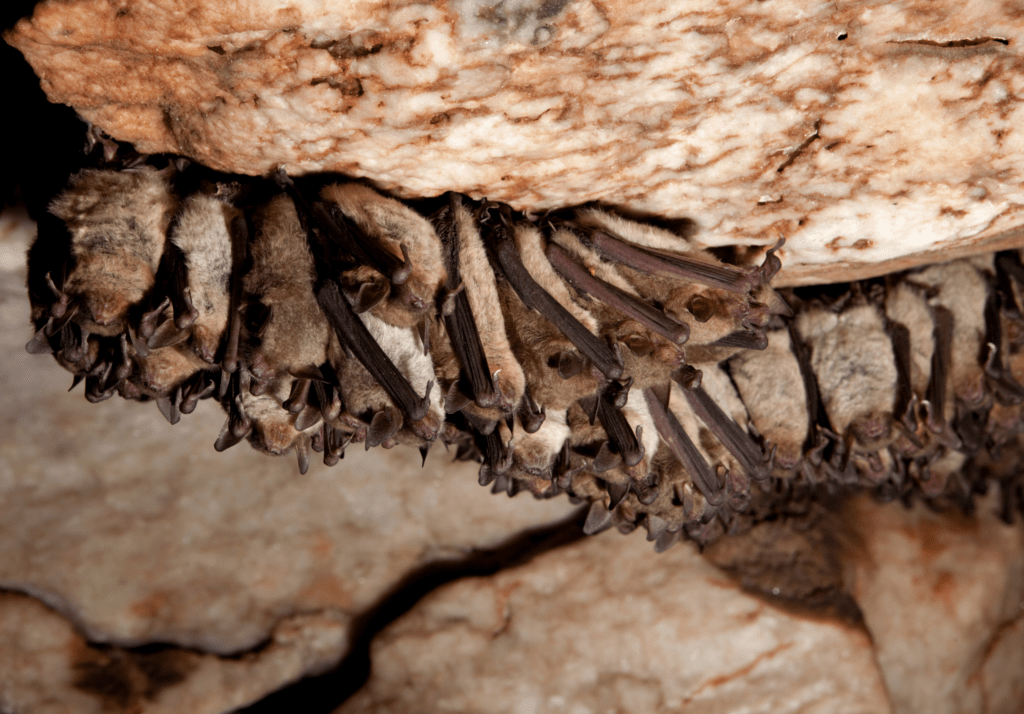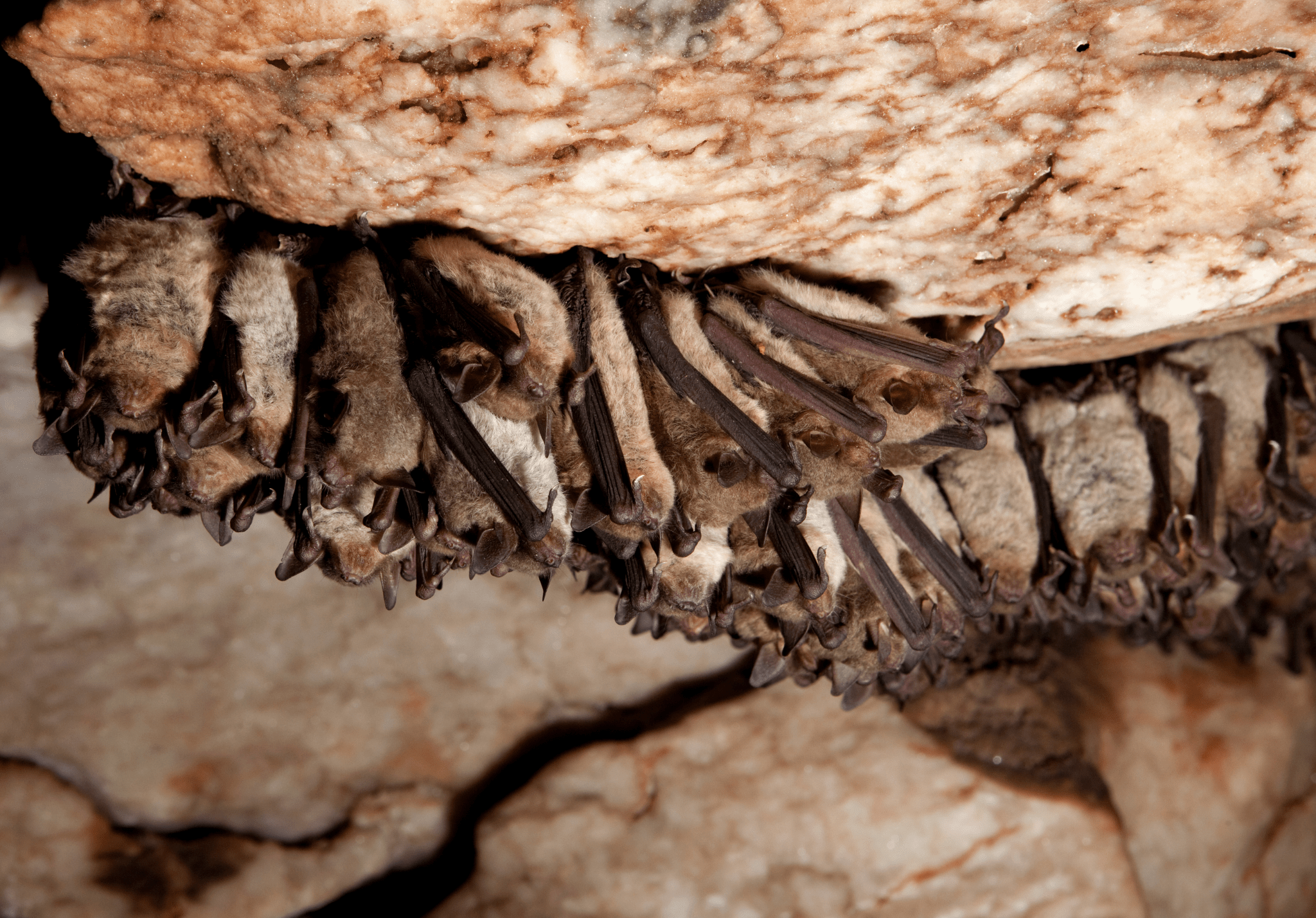
Every species adapts to the winter season differently. Bats are an especially interesting species in that different types of bats adapt in different ways. Some hibernate, and some migrate to warmer places for the winter. For those that hibernate, the process involves a few steps that need to be taken for successful winter survival. Read on to learn more about bat hibernation.
What is Hibernation?
When bats hibernate, they reduce the rate of their essential functions in order to survive for long periods of time without food. Bats take more time between heartbeats and more time between breaths, as well as slowing down the rate of their metabolism. Big brown bats, little brown bats, Northern long-eared bats and tri-colored bats are a few types of bats that hibernate.
Selecting Suitable Winter Roosts
Finding a suitable winter roost is an important part of the hibernation process. Bats like to hibernate in places like caves, mines and rock crevices when they’re out in nature. However, more and more bats have been gravitating toward people’s homes for winter hibernation. People’s homes provide protection from the cold and from predators.
Fat Accumulation and Energy Conservation
Hibernating bats slowly metabolize their fat stores over the winter. During the winter season, their energy costs are reduced by about 98%, which makes it easier to keep fat stored. They go into a state called torpor, which is a state of inactivity that lowers the heart rate, body temperature and metabolic rate for a few minutes to a few hours at a time during hibernation.
Winter Survival Risks
When bats hibernate in colonies, they run the risk of a disease called white-nose syndrome. This disease grows well in cold, damp places and is caused by a fungus. The fungus grows on the exposed skin of hibernating bats. It bothers bats, causing them to wake up on warmer winter days. Once they wake up, they realize they need food to sustain themselves, and they sometimes are unable to return to hibernation, which causes them to die.
Hibernating bats have many ways of adapting to winter, and the first step is finding the perfect place to roost. If bats have chosen your home as their winter roost, reach out to the team at Pro-Staff about bat removal in Des Moines. Call us at 515-279-7378 or contact us online for a free inspection.

